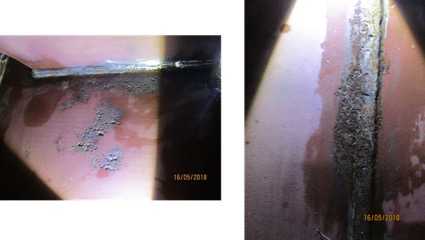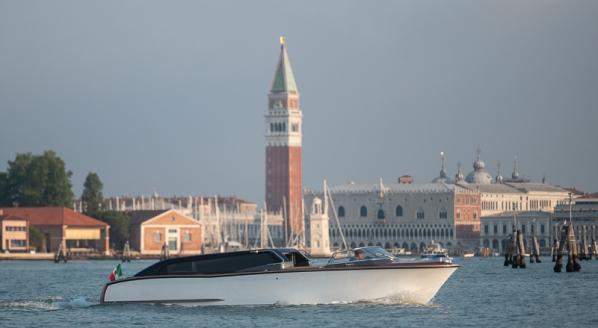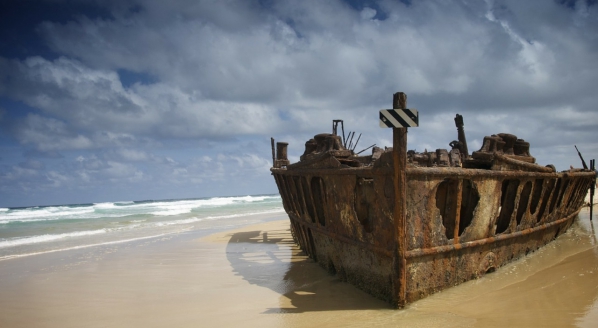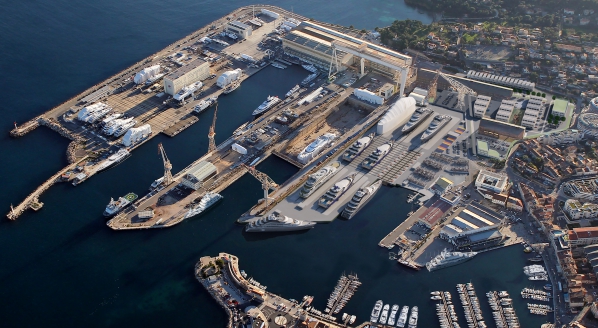The drawback of low-sulphur fuel
The increasingly low sulphur content in fuels can cause the severe corrosion of fuel tanks on board…
The MARPOL Annex VI amendments to limit sulphur content in bunker fuel oil did not threaten to impact the superyacht industry, considering most yachts already use low-sulphur fuel. However, the fact that the sulphur content of fuels is and will reduce further is already literally leaving its mark on some yachts. Lloyd’s Register has reported rising incidences of severe corrosion in fuel tanks and possible clogging of dispensing systems, which will only increase as sulphur content is limited further.
Sulphur essentially helps fight bacteria, meaning the reduction of sulphur content in fuels has seen the increase of bacteria proliferation, in combination with condensation and additives. Diesel fuel also suffers from microbial growth problems when water is present in the tank: fungus, mould and different kinds of bacteria live in the water and use the diesel fuel as a food source.

Photographic evidence of corrosion on the fuel tank of a recently-delivered yacht due to bacteria proliferation, courtesy of Lloyd’s Register.
The secretions from these tank pests have a detrimental effect on fuel quality and contribute to equipment problems on board. “Due to bacterial presence, the fuel systems will generate problems, such as choked fuel filters and erratic engine operation,” explains Engel de Boer, yacht segment manager at Lloyd’s Register.
In the past, sulphur acted as a natural biocide, but since there's nothing to prevent bacterial growth in low-sulphur fuels, biocides are used to treat the fuel and prevent microbial growth. However, Lloyd’s Register has also reported that corrosion can be increased by overdosing products with biocide.
It is, of course, easier to prevent these problems than it is to repair them after they happen. Lloyd’s Register advises that costly repairs and time delays can be avoided by ensuring timely fuel oil bunkering analysis.
Profile links
NEW: Sign up for SuperyachtNewsweek!
Get the latest weekly news, in-depth reports, intelligence, and strategic insights, delivered directly from The Superyacht Group's editors and market analysts.
Stay at the forefront of the superyacht industry with SuperyachtNewsweek
Click here to become part of The Superyacht Group community, and join us in our mission to make this industry accessible to all, and prosperous for the long-term. We are offering access to the superyacht industry’s most comprehensive and longstanding archive of business-critical information, as well as a comprehensive, real-time superyacht fleet database, for just £10 per month, because we are One Industry with One Mission. Sign up here.
Related news

How can the superyacht industry help to keep Venice afloat?
Nuvolari Lenard launches “green” luxury watercraft
Design

Industry prepares for EU Ship Recycling Regulation
Vessels over 500gt in EU waters will be required to carry a verified Inventory of Hazardous Materials on board
Business

Superyachts will no longer be able to anchor in areas of seagrass
However, questions remain over the implementation of France's new prohibitive anchorage laws
Crew

Environmental ego
Is environmental ego the next big motivator? My superyacht is greener than yours
Owner

La Ciotat Shipyards: beyond the call of sustainable duty
The new 4,300 tonne shiplift marks LCS’ astonishing commitment towards sustainability
Business

Shipbuilding and yachting: what lies ahead?
The Superyacht Group announces partnership with The Economist’s Sea Tourism Summit 2020
Business
Related news
Environmental ego
5 years ago
Shipbuilding and yachting: what lies ahead?
5 years ago
Can we really clean up our act?
5 years ago
NEW: Sign up for
SuperyachtNewsweek!
Get the latest weekly news, in-depth reports, intelligence, and strategic insights, delivered directly from The Superyacht Group's editors and market analysts.
Stay at the forefront of the superyacht industry with SuperyachtNewsweek




